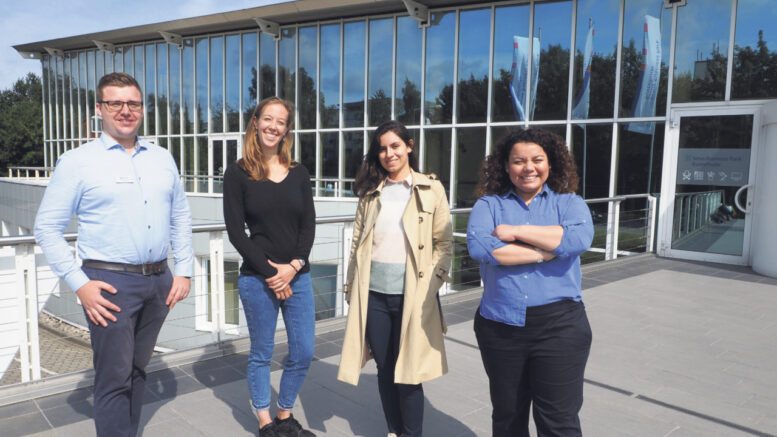
Source: BUSINESS & PEOPLE
Author: Wolfgang Becker
Lignopure, a spinoff from the Hamburg University of Technology (TUHH), has found a suitable production space at the Sirius Business Park Buxtehude and is now able to provide the technical conditions for the production of sustainable lignin-based raw materials for the cosmetic industry. Lignopure Founder, Joana Gil, and Co-Founders, Dr. Wienke Reynolds and Daniela Arango, are keeping their company’s offices in Hamburg Harburg, but have not found a suitable hall there. Center & Operations Manager, Lars Wiesener, on the other hand, was able to help immediately, because lignin production requires, among other things, water and electricity to extract the plant-based raw material lignin from the unprocessed crude biomass – requirements that Sirius Business Park can meet. Lignopure’s sustainable product approach aligns with the strategy of Sirius Facilities GmbH, which operates industrial parks throughout Germany.
Sirius tenants can expect a thoroughly renovated property that can be used in a variety of ways and will be operated with sustainability in mind. Lars Wiesener, Sirius Operation Manager: “That’s part of the corporate strategy. We use green power at our sites, are gradually converting to LED lighting, automating lighting controls and equipping the parks with e-charging stations if possible.” And let’s not forget: The gardener has just planted a wildflower meadow in Buxtehude – and there is an insect hotel, of course.
Lignopure should also feel at home in this environment because the raw material lignin can replace the ingredients in cosmetics, shampoos and skin care applications that environmentalists are focusing on more and more and, therefore, will have to be replaced within the industry. Lignin could be such a substitute. Wienke Reynolds: “This location is very interesting for us because it is a traditional production site. The fact that our future neighbors include Unilever and Synthopol is also interesting.” According to Joana Gil, production is expected to jump to somewhere between 85 and 90 tons of lignin each year – more than enough to serve the cosmetics industry.
Source and complete article:
